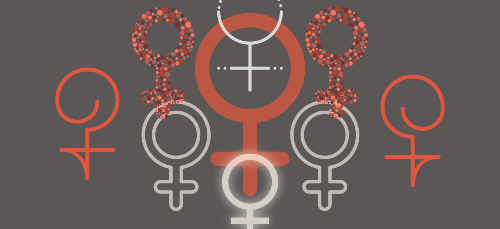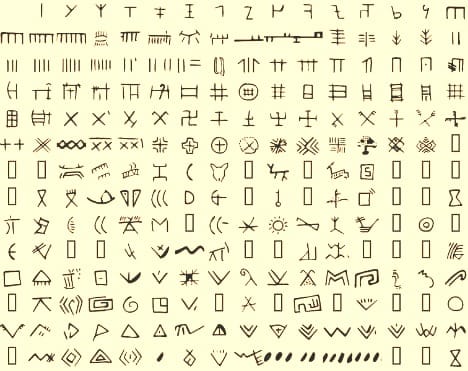Sisterhood / Coalition 3 |by Esmée Streachailt
Solidarity = Freedom Making Action

One of my favorite not-feminist thinkers is Timothy Snyder (I mean, he's one of everyone's at this point). We're both GenXers, went to lots of REM concerts in the 1980s and 90s, both huge fans of Vaclav Havel the dissident statesman, &c. Both very interested in the history of the mid-late 20th century because ... it was wild with incredible forces pulling toward liberty and toward oppression (that called itself liberty). When Trump was elected (the first time, Medusa's Blood!), Snyder wrote the important book On Tyranny, and now that he's back, Snyder has published the follow up, On Freedom (both available as audiobooks).
If the first rule of resisting tyranny is “Do Not Comply In Advance,” then the five elements of freedom are What To Do Rather Than Comply.
He's thinking about a pretty standard liberal democracy and how to preserve it, and he does a decent job of including of women in this thinking, but what I want to do here, as we move toward talking about coalition, is think about his Five Elements of Freedom in the context of women's movement and feminist solidarity.(1)
Patriarchy tends to think in Nouns, in properties and property. Freedom is a property of Man, for example. And Snyder tends to think about Freedom as a set of properties or conditions that result in human thriving. I want to go the RadMatFem way and think about freedom as a Verb, a process, an ongoing creation (something that makes sense on the bubbling and flowing margin).
The Five Elements of Freedom
- Freedom of the human experience - sovereignty
- Freedom of the unknown - unpredictability
- Freedom of movement - mobility
- Freedom of knowing - factuality
- Freedom of togetherness - solidarity
That word "sovereignty" will set off some RadMatFem alarm bells because of its connection to property and territory, to the impossible self-sufficiency and isolate unity of the Male Default, the godlet forever seeking this idealist perfection and never attaining it and raining hell on his others in the process. (3) Snyder doesn't mean it that way, or not entirely. His concept of sovereignty is more like human maturity or self-realization or authenticity.
It’s only fully possible when people have secure food, housing, education, income (think negative income tax), civic institutions and connection, and the ability to make their own meaning. That's created in community (here he comes close to RadMatFem understanding of the individual), through learning history, sure, tradition, sure, but skills and relations. The whole human understands her relation to the community (even as rebel or seeker), acts responsibly in the light of that relation, and can also operate creatively and strategically on her own. None of these states or conditions simply exist for us to move into. We must make them and sustain them with and for each other.
A properly 'sovereign' individual is capable of unpredictability. Yes, that means surprise, but more than surprise it means creation, invention, the conviction that the future is unwritten. Under totalitarian rule, our moral core can crumble. Indeed, that is a goal of such rule, to crush our spirit down to cynicism and compliance. Unpredictability keeps us authentic – none of us really knows how our actions are going to play out, so we have to be clear in our motives and responsive to our world. In this way, we are not a cog in someone else’s machine. Info tech, social media, these have totalitarian drives almost built in – so much of our creation looks like other’s creations, our voices become samples of many other voices, and we are quickly sorted into emotionally manipulative logarithms that make us predictable to both corporations and governments. For both social media and authoritarian systems, we humans are both the resource and product, the more standardized the better for them. When you open a screen, think about whether your actions and intentions are getting stuck in there or moving through there to another person you care about.
To be authentic, we need our unpredictability, and that requires that we can move in our imaginations, can move about in our social relations, and can physically move around on the planet. Mobility is the exploration of our own paths to our own futures as we want them. It’s also social mobility. The New Deal and the Great Society were packages of policy & law designed to increase social mobility and with it grow our collective economy. Since the sustained attacks on them under Reaganite neoliberalism and now MAGA oligarchism, fewer people are moving out of poverty, almost no Millennial or Gen Z citizen can expect to do as well as their parents. Along with this, under leaders like Orban, Putin, or Trump, messages about the inevitability of these conditions and nostalgia for a mythic past greatness work to convince citizens that there is no way out, forward – that there is no point to mobility.
As you can tell from these descriptions, these five elements of freedom are practices. And they are all under immense pressure now. The more we practice them and support them in/for each other, the better we will resist these pressures.
To develop our authenticity, unpredictability, and mobility in ways that have meaning for us and beneficial effects for our communities, we have to have factuality, knowledge. Factuality about our existence, our histories, these give us the grounds on which to dream and build our futures. We need to get past the glittering surfaces of information and disinformation to the harder thing, the truth, the most useful insight. Clearly, we are operating in an environment designed to prevent this essential freedom. Those insights are the ones that help us live our authenticity, in unpredictable response to the always arising new conditions with the mobility of mind and body to secure those insights for ourselves and our communities. Truth, it turns out, is shared, partial, and responsive to conditions, but it can only be made from clear, established facts.
Disinformation, doublethink, and divisive algorithms shatter the freedom we find in togetherness, in solidarity. Solidarity is the moral conviction that we all deserve the same quality of freedom supported by actions that secure all our freedoms for all of us. Racism, sexism, classism, these are all failures of solidarity. Patriarchy, at bottom the idea that men are entitled to women’s lives as a resource for their own sovereignty, is the original failure of solidarity. Detention camps, gulags, the privileging of economic efficiency over human well-being — all failures of solidarity, lapses in moral imagination.
Actions of Freedom In RadMatFem
To have freedom, we must practice it. Like love, freedom is ultimately a verb. We build worlds by Doing Those Worlds. And interestingly from a feminist perspective is that Snyder thinks of these five elements as interdependent and mutually enhancing. Together they create a context, the grounds of a world.
I know. It's super easy to write this down and theorize about it. But look, all we can do as human creatures is learn something and try it out, practice, and get incrementally better at it. I don't think of this post-series as a long set of demands. I think of it as laying out a bits of a RadMatFem Working Spirit that looks to me likeliest to produce stronger women's movement and more would building.
One of my attractions to Snyder is that he sees clearly that the negative freedoms (the government shall not....) work fine for the class of people (white, heteronormative, land-owning, men) who just want to get the government of a king off their backs and out of their wallets so they can do what they like. (2) The five elements of freedom he articulates are positive freedoms, even positive rights, if we articulate them that way. And THIS IS USEFUL for feminists.
(1) I am not great at the short-form, at summarizing. In fact, I am famously long winded. So, I'm paraphrasing the summary of On Freedom from Blinkist. This is not an endorsement, just an admission of taking help where I need it. Left on my own, I will gather fascinating details like a crow-woman gathers talismans for a spell in some tale where she was The Mother and the spell was the shape of the rivers.
(2) This complex is the central subject of the work of Jane Clare Jones, mother of the name “radical materialist feminism,” beginning with her dissertation.
(3) Quickly, most RadMatFems are more socialist (care economy) and anarchist (participatory self-governance) than any liberal democrat would be comfortable with. However, as materialists, we are also clear-eyed about the historical dialectic (process of events and responses) we want to foster. And that process of feedback and emergence moves through liberal democracy because this is the system humans (men) made that articulates and preserves rights. It's the system most of our readers live in right now, so it's the one we have to engage when we are in danger of it collapsing into the intensified abuses of authoritarianism. We want to tweak (and jolt!) this dialectic toward a RadMatFem world, and it emerged in response to various tyrannies and the 20th century is a clear lesson that this emergence is not necessarily secure and permanent. To get to the feminist world, we have to preserve and deepen liberal democracy as a tool for making more freedom (for now).
Maybe this post moved you? Would you like to dedicate it in the name of an ancestor, sister, sister-friend, lover, daughter? Use Eopsin's Ward to have your dedication added here.
Add your voice to this Gorgon chorous? Visit Contribute.




